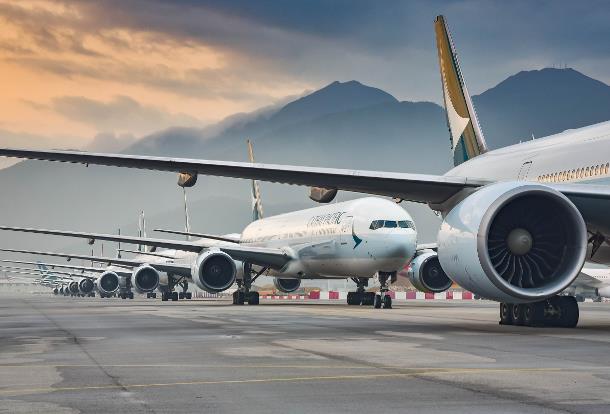“Our investment is bearing fruit.” This emphatic statement from Qunar’s CEO and co-founder, Chenchao Zhuang, was a major highlight of the company’s Q4 2014 earnings call.
Quarter after quarter the results of Chinese travel e-commerce specialists are keenly analyzed to ascertain what would it take to curtail operating and net losses. And what eventually would lead to profitability, especially when sustained investment is happening in product development, product sourcing and marketing. In case of Qunar, net loss attributable to Qunar’s shareholders for 2014 was RMB1.8 billion, compared to RMB187.3 million for 2013.
Zhuang made it clear that in 2014 the company assiduously pursued its growth tactics, counting on its technology infrastructure and product sourcing capacity. He accentuated on the fact that Qunar has transformed its hotel business from a traffic generation model to a direct model in a span of 12 months (it should be noted that the figure would have tilted post Ctrip’s decision to drop off its listing from Qunar in Q3, which must have pushed Qunar to push more direct business to customers).
As it emerged from the latest quarterly financial results, direct hotel volume accounted for 66% of total room nights stayed, up from about just a third for the January-March 2014 period. In addition to this, mobile revenues, too, stood out as they accounted for 49.5% of the total garnered during the last quarter. And the plan is to strengthen this foundation.
Total revenues for the fourth quarter of 2014 were RMB519.8 million, an increase of 107.1% year on year. Total revenues for fiscal year 2014 were RMB1.8 billion, an increase of 106.5% year on year.
Hotel coverage and monetization
In the hotel segment, as indicated in late January by chinatravelnews.com, Qunar had crossed over 200,000 properties in the domestic market for travel accommodation. Zhuang confirmed it and said this figure touched 237,000 by year-end, up from 92,000 till March 2014.
This is one of the major pillars of Qunar’s plans especially the battle to target the lower-end of the fragmented hotel space. This is one area where OTAs have been aggressively incurring expenditure. For its part, even though Qunar has often stressed that it has ample ammunition in terms of requisite infrastructure and e-booking system to bring on board over 140,000 small independent hotels, B&B and apartment-oriented listings.
At the same time, the industry has highlighted that Qunar also needed to catch in the “star-rating” category with Ctrip. “Our goal is to cover all segments of Chinese hotel market…,” said Zhuang. Referring to agreements with IHG and Marriott, he said, “Both are indications for our growth trend in hotel supply chain.” He did signal the progress made by the product sourcing team, which signed around 150,000 hotels in nine months or so.
Of course, the key going forward would be timing as to when and how Qunar would start counting on this segment for profitability. “Long-term monetization potentially is massive for large online players like us who can match supply and demand efficiently,” said Zhuang. “The return of 2014 investment in building our direct hotel network definitely came in earlier than we had expected. In 2015, we will continue to grow the room nights for each hotel we signed.”
Mobile transactions
Zhuang said Qunar is performing exceeding well in the mobile arena. Transaction per mobile user doubled in Q4 in 2014 versus a year ago.
“We have clearly monetized very well on mobile. And we are now one of the few companies in China in the space that had been able to do so,” he said. “In terms of volume, mobile accounted for 46% of all flight tickets and 70% of our hotel room nights in Q4, among the highest in the online travel industry globally.”
A substantial expenditure is expectedly being planned for the mobile channel. In the last quarter, Qunar developed sophisticated data analytical tools to predict mobile marketing ROI.
“Our users are loyal and engaged. They stay with us for a long period of time,” said Yilu Zhao, chief strategy officer. “…their transaction frequency increases as they stay with us for longer. (And because of these two points) naturally, contribution to our total transaction volume from the mature cohorts increases in a very consistent sequential manner quarter after quarter.”
Tactical changes
With progress in key areas, Qunar is making changes. For instance, Qunar is going to curtail PC-focused marketing expenses. The shift would be titled in favour of mobile marketing expenditure. Accordingly, Qunar has chosen to bring down traditional SEM expenses.
Also, the company is reducing its Zhixin page views. The Zhixin agreement was for PC only. “Outside of the scope of Zhixin, we will continue to work with Baidu very closely on mobile,” said Zhao.
Other expenses were also kept in control, the team highlighted. Headcount across functions was done mostly to support the hotel direct business.
Even though Qunar is stressing on the fact that it has come a long way since its inception in 2005, the going isn’t easy for any player. In fact, in addition to multiple existing players, the mushrooming of the likes of Meituan, and the entry of Alitrip, a business unit of Alibaba, tactics chosen to stay ahead in this category would be severely tested.
(Report by Ritesh Gupta)




